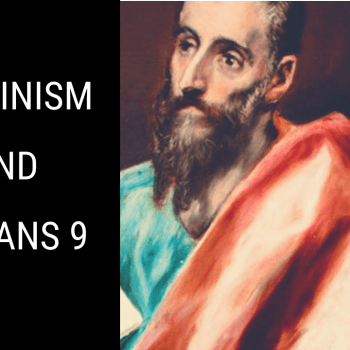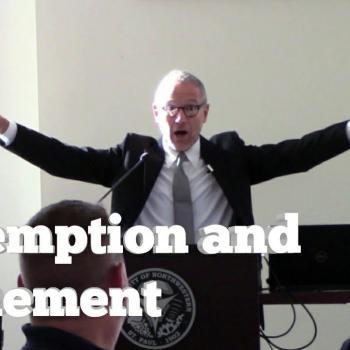On a recent episode of the Reformed radio show “Christ the Center”, Professor at Westminster Seminary in Philadelphia, Lane Tipton, discussed the differences between Lutheran and Reformed views of union with Christ and sanctification. According to Tipton, giving justification primacy in theordo salutis,(as in Lutheranism) necessitates a view of semi-Pelagianism. Only Calvinists can lay claim to Augustine’s anthropology. If justification precedes other soteriological benefits, regeneration must occur as a result of justification. If this is true, faith becomes a possibility of the natural man apart from the Spirit’s work. Tipton even went on to compare the Lutheran view of sin with that of the New Perspective. Is this really true? Do Lutherans hold a low view of sin, and approach semi-Pelagianism? What do the Lutheran Confessions say on the topic?
Augsburg Confession Article V: “For through the Word and Sacraments, as though through instruments, the Holy Ghost is given, who works faith; where and when it pleases God in them that hear the gospel.”
This is exactly the opposite of what Tipton suggests Lutherans teach. The Holy Spirit is given to create faith, not because of faith.
Augsburg Confession Article XVIII: “Of free will they teach that man’s will has some liberty to choose civil righteousness, an to work things subject to reason. But it has no power, without the Holy Ghost, to work the righteousness of God, that is, spiritual righteousness; since the natural man receiveth not the things of the Spirit of God, but this righteousness is wrought in the heart when the Holy Ghost is received through the word.”
Again, the Holy Spirit must precede any good in man. This would include faith.
Small Catechism II:3 “I believe that I cannot by my own reason or strength believe in Jesus Christ, my Lord, or come to Him; but the Holy Ghost has called me by the gospel, enlightened me with his gifts, sanctified and kept me in the true faith; even as He calls, gathers, and sanctifies the whole Christian Church on earth”
Epitome II:19″Therefore, before the conversion of man there are only two efficient causes, namely the Holy Ghost and the Word of God, as the instrument of the Holy Ghost, by which He works conversion. This Word man is to hear; however, it is not of his own powers, but only through the grace and working of the Holy Ghost that he can yield faith to it and accept it.”
These quotes could be greatly multiplied. The entire Article II of the formula of Concord is on the subject of free will. The assertions of Dr. Tipton are unfounded. The Reformed do not lay sole claim to Augustinian anthropology. If one is in fact to read Augustine’s anti-Pelagian treatises, they are far from “Calvinistic.” For Augustine, all grace is routed in baptism.











